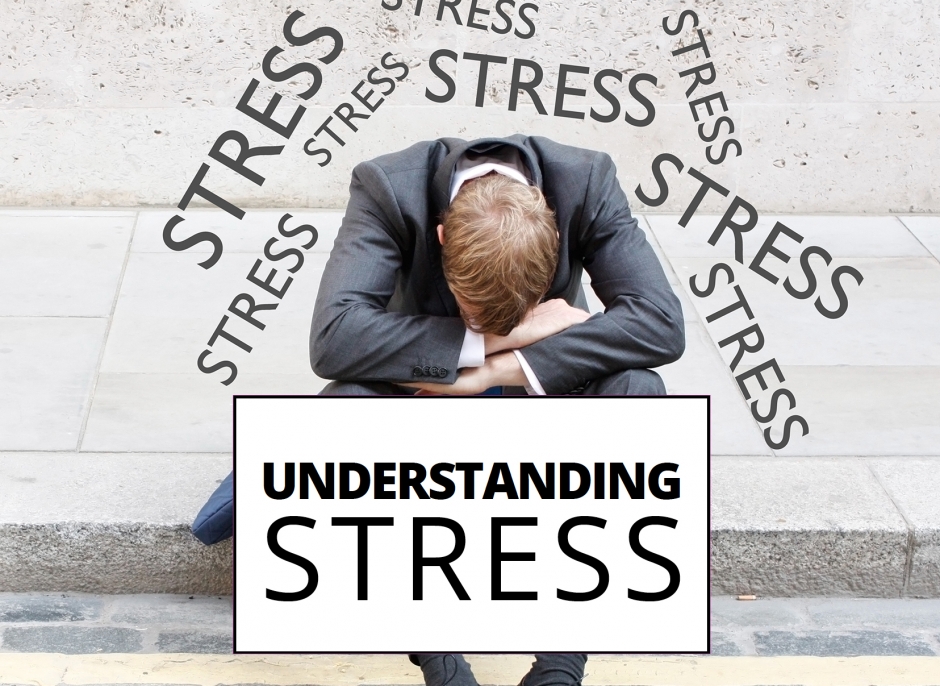Benjamin Bonetti explains what stress is – and how understanding it can help us to achieve the unachievable
Stress for me is encountered when the boundaries within a certain area are being stressed. Just as the fibres on a rope become stressed when tension is applied, the same happens within our thinking and physiology. The more pressure there is, the more tension there is; the more tension, the greater the chance that there will be some form of catastrophic failure.
Having treated and educated a number of people with an adopted stress state, one thing has become very clear: these individuals all adopt a state that shows one or more of the following conditions/behaviours. Consider whether any of these match or relate to you:
- General lethargy – a general lack of motivation to get up in the morning, and so on.
- Muscle tension – a feeling of tight muscles, especially around the head and shoulders.
- Generally unwell – a feeling of being unwell, yet no specific symptoms to help diagnose the problem.
- Snappy and irritable – a tendency to get into arguments with loved ones over petty issues.
- Lack of focus – a lack of concentration in general, and the inability to finish even the most simplistic of tasks.
- A sense of feeling lost – a sense of being alone, exacerbated by a lack of motivation to socialise or spend time with friends and family.
Important note: it’s perfectly normal to have any one or more of the above symptoms. Accept this and switch your focus from this point forward towards betterment, not procrastinating on the past state.
So what happens when your stress levels go beyond the manageable level?
If your stress levels get beyond being manageable, it’s time to seek further professional advice from your local doctor or health care professional. It’s important to be aware that there are times when ‘stress’ is not the primary issue and it can be a symptom of something much more.
Stress is nothing more than a behavioural state. Each one of us has our own set of stress triggers. For some, getting stuck in traffic and arriving late at work triggers a stress response; for others, it takes something akin to being chased by a lion to trigger a stress response. However, the stress response is the same in all of us, irrespective of the trigger.
The stress response is a process controlled by the sympathetic nervous system, which is basically the part of your neurology that gears you up ready for a ‘challenging’ situation. Stress is very often considered to be a modern day infliction and a result of our fast-paced modern lifestyles, but it is in fact an innate response that has been fundamentally important to the survival of mankind throughout the ages. In the days of our pre-historic ancestors, the stress response was simply a ‘fight-or-flight’ response that prepared us to stand our ground and fight for survival in a life-threatening situation or turn tail and run for our lives! The stresses we face today in everyday life are unlikely to be matters of life and death, but the response in the human body remains the same… our sympathetic nervous system still prepares us to fight or take flight for our very survival.
The physiological response to stress
In response to a stress trigger, a hormone called adrenaline is released from the adrenal glands. The presence of adrenaline in your blood supply then generates several physical reactions, all intended to help you survive the life-or-death crisis you’re facing!
The physical reactions include:
- Sugar being released from the liver into the blood to give your body an energy boost in preparation for the fight or the run for the hills!
- An increase in your breathing rate so that you can take in more oxygen.
- An increase in your heart rate to speed up the delivery of the extra sugar and oxygen to your muscles and brain.
- An increase in your cholesterol levels to help thicken your blood and make it clot more easily should you suffer an injury.
- A slowing of your digestion processes, as the digestion of food is deemed a non-essential function in a crisis situation – your energy is needed elsewhere.
In prehistoric times, all of these physical reactions were crucial to survival when faced with situations that represented very real and immediate danger, such as being stalked by a sabre-toothed tiger. The ‘dangers’ we face in modern life are much less immediate – chasing a looming deadline, traffic jams, or just not having enough hours in the day to tackle everything that needs to be done, for example. This means that your body is now subjected to a much more prolonged stress response. It’s this prolonged exposure to the physical reactions of the stress response that’s responsible for today’s stress-related illnesses.
Under normal circumstances, the daily running of your body is controlled by the parasympathetic nervous system. When your senses detect that you’re facing a ‘challenging’ situation, your body switches systems and the resulting flood of essential hormones and chemicals allows you to perform at your peak when you need it most for defence/protection.
Why do we have different stress thresholds?
We are all genetically different, not only physically but also emotionally, so we all respond differently to everyday happenings and events. A stressful situation for one is not necessarily stressful for another, but we all have our own thresholds beyond which the stress response will kick in. The more we build our understanding (by means of education) and improve our overall health and fitness, the more able we are to adapt to the demands of our lifestyle and to raise our stress threshold in the process.
To learn how to manage stress, it’s essential to understand and accept that stress is something we all encounter. We all have a ‘built-in’ stress response; managing stress is just a matter of working out a system that best suits you, allowing you to then utilise it when required.
Education and the consequent ability to work out your own stress strategies will not only maximise your potential to work and perform to a higher level, it will also boost your confidence to face ‘stressful’ situations head-on and achieve what in the past may have felt unachievable.
(CTA) This is an edited extract from How To Stress Less: Simple ways to stop worrying and take control of your future by Benjamin Bonetti (published by Capstone).





